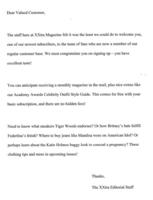Book Report: First Democracy
Last night I went out with a couple of friends to see the band Quasi. This was a good thing. I finally finally made it to a show at the Cafe du Nord, thus checking off one of my life goals. Also, one of the opening bands was pretty good, with complicated beats, fun drones, and fun viola: Talk Demonic. Check them out. Yes, I know, it's strange to hear me recommend a band that isn't a Japanese ska band. Yes, I know, you expect book recommendations instead. All right: I recommend First Democracy by Paul Woodruff.
Here in the USA, we don't live in a true democracy. We live in a republic. We elect officials to act as oligarchs. We let the people vote on some things. Some. And we tell ourselves that's all right because Democracy Doesn't Scale.
Maybe it doesn't, but maybe it does. First Democracy told me things about democracy as practiced in ancient Athens. They, too, realized that it wasn't practical to have everyone in the land vote on every issue. But they didn't want to put much power in the hands of elected officials. They were wary of tyrants.
So they didn't elect their officials. They chose them by lot. Yeah, randomly. And those randomly-chosen legislators did OK. They were harder to corrupt than elected officials. If you have elected officials, those same officials keep getting elected. So once you find out about Senator Bedfellow's indiscretions with that "liaison officer" from Sparta, you have a senator in your pocket for the next several years. But once Joe Schmoe gets randomly chosen as a legislator, by the time you get some juicy gossip on him, he's probably halfway done with his term.
That's not a perfect system. People whine about jury duty. I whine about jury duty. Now imagine what happens when someone tells you, "Your number came up. You're going to the capital for a year to listen to debate about mineral rights." Not perfect, but it expanded my horizons to think about it.
This book ties together other long-lost innovations in populist government. And it talks about places where Athens went wrong. It's enough to get you excited about election reform again. Like, if we had a better election system, it wouldn't just mean shedding our current useless two-party system. If we had a decent voting system, we could let people vote on many more things than they do today--and the results would probably be better than letting Washington fat cats decide it.
Labels: book

